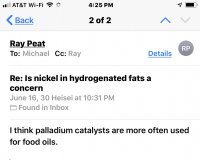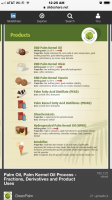michael94
Member
- Joined
- Oct 11, 2015
- Messages
- 2,419
These are common/easy to find in food products. I can think of several off the top of my head that used fully hydrogenated corn/soybean oil, but Im having an impossible time finding these fully hydrogenated oils on their own ( besides 92 degree coconut oil, but I have some of that already ).
I am not loking for butter or coconut oil but I understand why someone would suggest to just use those. Thx in advance.
I am not loking for butter or coconut oil but I understand why someone would suggest to just use those. Thx in advance.


